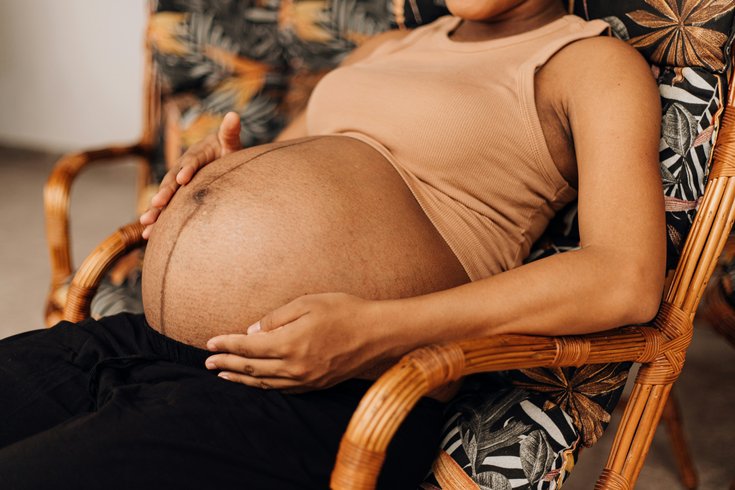
September 12, 2024
 Jeferson Santu/Unsplash
Jeferson Santu/Unsplash
Black women are more likely to receive unscheduled C-sections than pregnant white women, according to a new study analyzing data from New Jersey hospitals.
Doctors are more likely to subject pregnant Black women to unnecessary cesarean deliveries than pregnant white women, particularly when operating rooms are sitting empty, according to research conducted in New Jersey hospitals.
Black mothers who arrived to the hospital without scheduled C-sections were 25% more likely to deliver by C-section than non-Hispanic, white mothers, according to the new study published by the National Bureau of Economic Research. The gap was widest between Black and white pregnant women who had the lowest medical risks in giving birth, and unnecessary operations can impact maternal and infant health.
A C-section is the surgical delivery of a baby through an incision made in the mother's abdomen and uterus. Doctors may opt to deliver a baby via C-section when they believe it's safer than vaginal delivery for the mother, baby or both — whether due to problems with labor, size or abnormal position of the fetus, multiple babies or other medical conditions. According to Johns Hopkins Medicine, there are risks and potential complications when getting a C-section, though, such as bleeding, infection, or injury to the bladder or bowel. Furthermore, after receiving a C-section, the mother may not be able to have a vaginal birth in the future.
C-sections are fairly common, with about 30% of all babies born in the United States delivered that way, according to WebMD. The rates of C-sections are rising globally, according to the World Health Organization, which suggests the number of medically unnecessary — and potentially harmful — operations are also increasing.
In the new study, researchers examined records of more than 993,000 women who gave birth in 68 New Jersey hospitals between 2008 and 2017. The women included in the study came to the hospital in labor and did not have C-sections scheduled. In women who arrived healthy and with few risk factors, Black women were more than twice as likely to be given C-sections in those cases. Even when they saw the same doctor at the same hospital, there was a 20% gap between the demographics.
When the operating rooms were occupied with scheduled C-section recipients, Black and white women had about the same chance of being sent there for delivery, the study found. But when the operating rooms were empty, the disparity emerged. This led study authors to determine that the racial gap in unscheduled C-sections is likely not due to medical reasons. Instead, factors like racial bias could be at play, according to researchers.
"Physicians may have certain beliefs about Black women," Janet Currie, a health economist at Princeton University and a co-author of the study, told the New York Times. "They might not be listening to Black women as much, or be more afraid that something will go wrong."
Racial disparities in maternal health care are well-documented. Black women are three times more likely to die from pregnancy-related causes than white women — due to factors like variation in quality of health care, underlying conditions, implicit bias and structural racism, according to the CDC. The study found that the unscheduled C-sections performed on low-risk mothers led to "worse maternal and infant health."
Financial reasons may also be at play. With and without health insurance, C-section births generally cost more than vaginal births. Currie also noted that when hospitals have operating rooms set up for C-sections, they like to keep them "busy."
The medical records analyzed by researchers could not provide all of the information about the doctors' medical decisions, and the study authors suggest more research is needed to determine why the disparities happened and what can be done to remedy the situation.
"The results point to the importance of provider discretion and suggest that many doctors simply set a lower threshold for performing unscheduled C-sections on Black mothers," the study authors wrote. "Further research is needed to determine whether this differential treatment reflects lack of care, communication barriers, cultural misunderstandings, or other factors so that the disparity can be effectively addressed."
Follow Franki & PhillyVoice on Twitter: @wordsbyfranki
| @thePhillyVoice
Like us on Facebook: PhillyVoice
Have a news tip? Let us know.